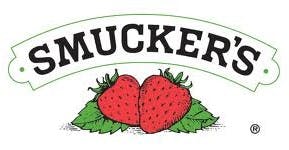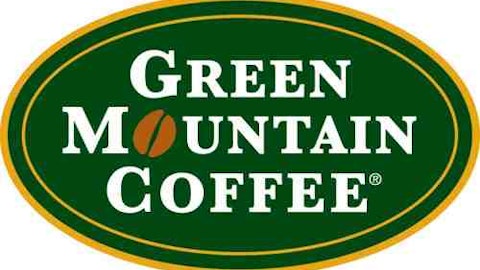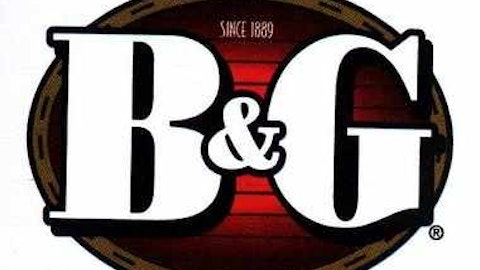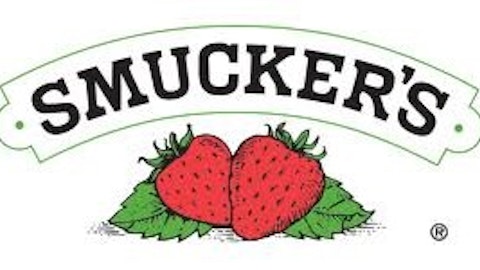The J.M. Smucker Company (NYSE:SJM) saw its stock pushed down some 4% last week after releasing fiscal fourth-quarter earnings results. However, with Smucker’s leading position in the peanut butter and coffee markets, now could be a great buying opportunity. Many of Smucker’s products are consumer staples, but what’s more is that the company has a leading position in many its niche product markets.

Vince Byrd, Smucker COO, did note that the company’s “strong brand building, innovation, and productivity initiatives with an ability to quickly adapt to market conditions has created a platform for growth.” The J.M. Smucker Company (NYSE:SJM) offers products that include include coffee, peanut butter, fruit spreads, shortening and oils, baking mixes and ready-to-spread frostings, and canned milk.
This strong brand that Smucker has created may finally be paying off. The company is now churning out a return on equity that’s the highest in 10 years.
The J.M. Smucker Company (NYSE:SJM)’s largest segment is the U.S. coffee market, which includes the Folgers brand. Last quarter, revenue from this segment expanded only 2% year-over-year, but the margins expanded some 520 basis points to 27.9%.
Key partnership
For its coffee segment, one of the long-term drivers should be the increasing demand for K-cups. Smucker has a key partnership with Green Mountain Coffee Roasters Inc. (NASDAQ:GMCR) for supplying Folgers and Millstone coffee brands in K-cups.
Green Mountain is the exclusive manufacturer of Smucker coffee branded K-cups, using roasted coffee beans provided by Smucker. Smucker expects to reach $300 million in K-cup sales during fiscal 2013, up 70% from 2012.
Smucker’s other major segment is U.S. retail consumer foods, which includes the Smucker’s, Crisco, JIF, Pillsbury and Hungry Jack brands. Innovation will be another key factor for Smucker, where, earlier this year the company introduced chocolate and mocha cappuccino flavors of JIF hazelnut spreads.
At the end of the 1Q there were only 22 hedge funds long Smucker; however, this was a 29% increase from the previous quarter. Ariel Investments has the largest position in Smucker, with a $60 million stake (check out Ariel’s top stocks).
Coffee market
One of Smucker’s biggest competitors in the coffee market is Green Mountain. Although the demand for K-cups is a long-term positive for The J.M. Smucker Company (NYSE:SJM), I believe it could be a headwind for Green Mountain, given the company’s over-reliance on this product.
After the run in with David Einhorn back in 2010 and Einhorn’s continued complaints about the company’s accounting, Green Mountain is still up 280% over the past 12 months. The company also recently upped its guidance for 2013 EPS to a range of $3.05 to $3.15, up from the prior guidance of $2.72 to $2.82.
Meanwhile, free cash flow is estimated to be in the range of $300 million $400 million compared to $100 million $150 million previously expected. Other news includes its K150 Series Commercial Brewing System being certified by the National Sanitation Foundation for food-service use.
Other good news for the company includes the fact that it expanded its partnership with Starbucks Corporation (NASDAQ:SBUX) for manufacturing and distributing Starbucks- and Tazo-branded single-serve packs. The agreement triples the number of Starbucks drinks to be sold in K-cups.
The real drawback for Green Mountain is its over-reliance on the Keurig Brewing machines. The company’s revenue is dependent on one-cup Keurig brew systems and the K-cup packages. Major peers Starbucks and Caribou Coffee Company, Inc. (NASDAQ:CBOU) offer alternatives that are notable threats to Green Mountain.
Going into the 2Q, there were a total of only 24 hedge funds long Green Mountain. Philippe Laffont’s Coatue Management holds the largest position in the stock, worth $291 million and making up 3.7% of its 13F portfolio (see Coatue’s small cap picks).
Nutty comps
Although Smucker’s JIF is the market leader, the likes of Hormel Foods Corporation (NYSE:HRL)’s Skippy and ConAgra Foods, Inc. (NYSE:CAG)‘s Peter Pan are also big names in the peanut butter market. Kraft Foods Group Inc (NASDAQ:KRFT) is also reportedly breaking into the U.S. peanut butter market with its Planter brand.
Hormel bought Skippy from Unilever N.V. (ADR) (NYSE:UN) last year. The deal is expected to boost Hormel’s EPS by $0.13 to $0.17 in 2014. Skippy offers 11 varieties and managed to generate some $379 million in sales last year. Skippy is also the market leader in China, but second in U.S. market share behind JIF.
Unilever is a leading global supplier of consumer goods across a wide range of food and personal product categories. Its home and personal care businesses in emerging markets are expected to drive growth. Emerging markets now account for some 55% of total sales.
Further throwing itself into the emerging markets, Unilever recently made an offer to buy up to 22.5% of Indian subsidiary Hindustan Unilever, potentially putting Unilever’s ownership up to 75%. Hindustan has leading brands of Brooke Bond (tea) and Kwality Wall’s (ice cream).
ConAgra is one of the largest U.S. food companies. ConAgra posted fiscal 4Q EPS of $0.55, compared to $0.53 for the same quarter last year and missing consensus of $0.56. Going forward, EPS is expected to be boosted by its Ralcorp Holdings, with accretion of $0.25 for fiscal 2014 EPS. Revenue is expected to be up 21% for fiscal 2014 year-over-year, with the help of a full-year from Ralcorp. The acquisition gives ConAgra access to the faster growing, or as they label it, the “very exciting space” of private brands.
However, the interim pressures related to integration of Ralcorp could pressure near-term results. In its latest quarterly earnings call, ConAgra noted that it expects “bumps and bruises” during the integration of the Ralcorp business. Part of the problem is that Ralcorp’s business has been driven by acquisitions and cost savings, compared to ConAgra’s strategies for long-term, organic growth.
Paul Maass, president of ConAgra’s commercial-foods division, had this to say about the integration efforts: “I think the history of Ralcorp was that they focused an awful lot on acquisitions, and they were rolling up various pieces of private label, and I think one of the byproducts of that is that’s an organization that historically is not really focused on organic growth the way we have.”
ConAgra is also joining forces with Cargill and CHS Inc. (NASDAQ:CHSCP) to form a new mill, Ardent Mills, which is expected to be one of the company’s long-term earnings drivers. The new mill is expected to start running in late 2013. Hopefully ConAgra will be able to use this boost in earnings to continue returning cash to shareholders. ConAgra is looking to maintain its solid $1.00 per share annual dividend payout, a 2.9% dividend yield.
Heading into the second quarter there were a total of 30 hedge funds long ConAgra, a change of 25% from one quarter earlier. Billionaire Ken Griffin of Citadel Investment Group has the largest position in the stock, worth close to $229 (check out Griffin’s cheap stock picks).
Bottom line
The J.M. Smucker Company (NYSE:SJM) appears to be well positioned, with leading market share in the peanut butter and coffee markets. While the product diversity that ConAgra and Unilever provides is enticing, I believe the growth opportunities provided by Smucker provides a better risk/return trade-off for investors.
Marshall Hargrave has no position in any stocks mentioned. The Motley Fool recommends Green Mountain Coffee Roasters.
The article Why Peanut Butter & Coffee Is a Great Combo originally appeared on Fool.com.
Copyright © 1995 – 2013 The Motley Fool, LLC. All rights reserved. The Motley Fool has a disclosure policy.





